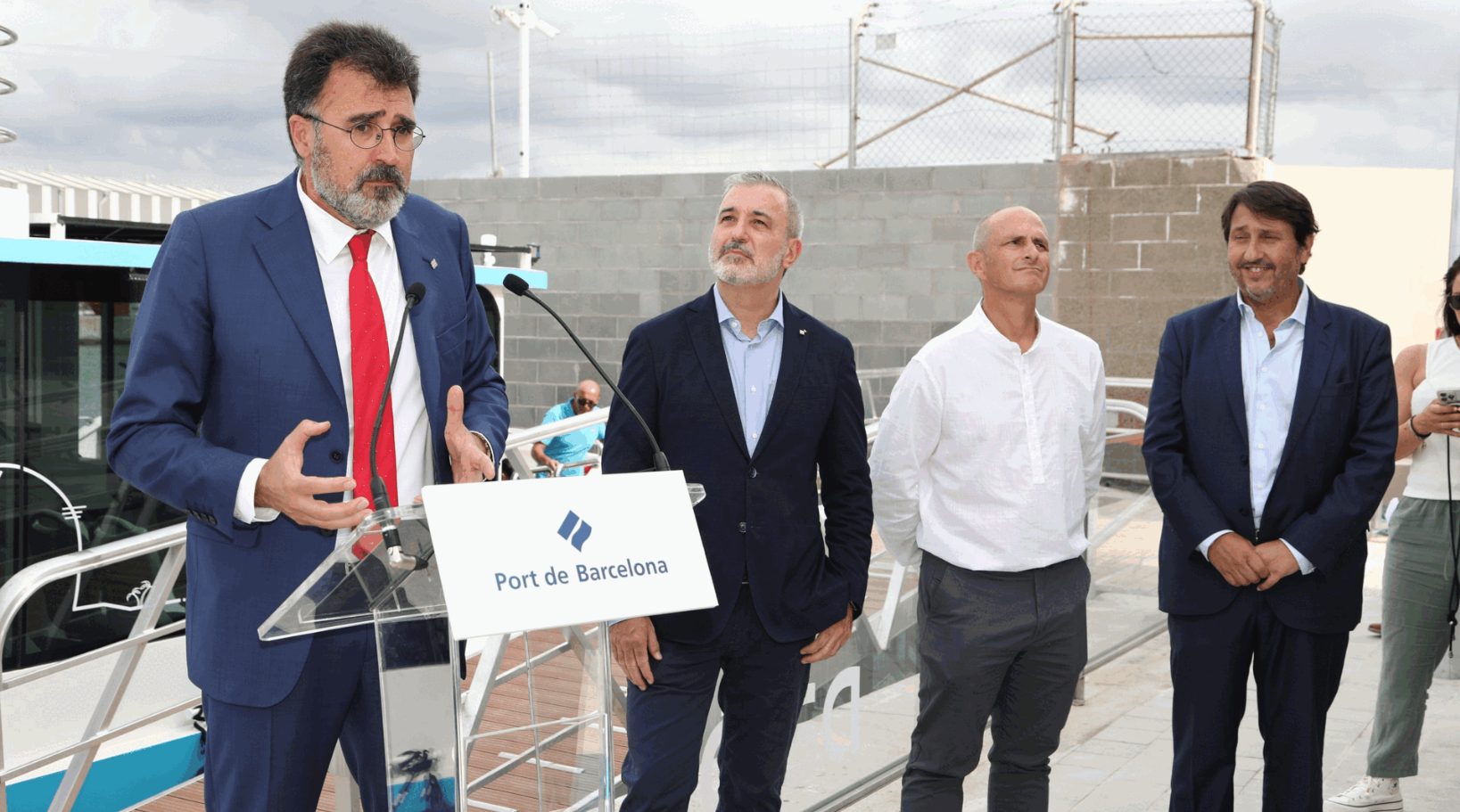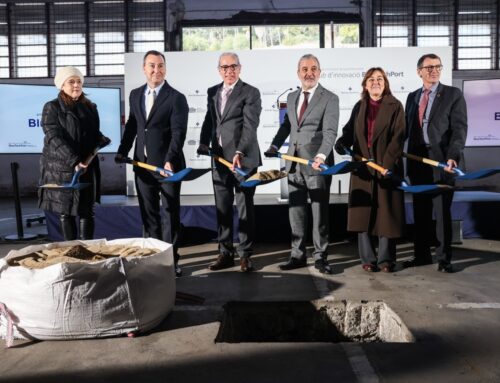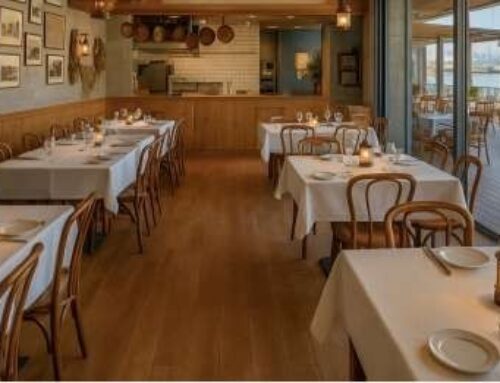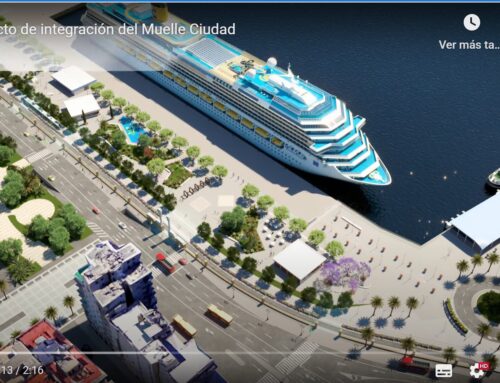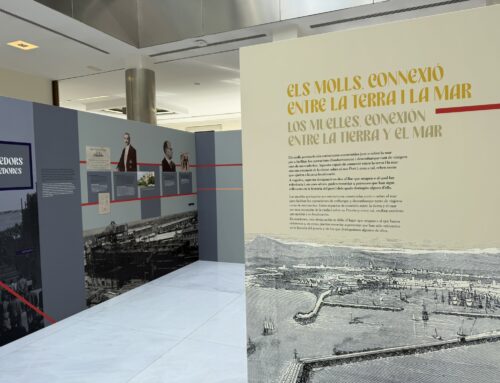• Today, the new service – provided by two zero-emission boats operated by Alsa – connecting the Drassanes and Llevant docks was presented.
• Lluís Salvadó: “The Bus Nàutic is an important piece to advance the integration of Port Vell into the city.”
• Francisco Iglesias: “In this project, three strategic lines in which Alsa has been working intensively come together: sustainability, multimodality, and tourist mobility.”
Today, the new Bus Nàutic service between the Drassanes and Llevant docks was presented, marking a significant step by the Port of Barcelona in the port-city integration and redesigning the internal mobility of Port Vell. The inauguration featured speeches by the mayor of Barcelona, Jaume Collboni; the president of the Port of Barcelona, Lluís Salvadó; the CEO of Alsa, Francisco Iglesias; and the director of Port Vell, David Pino.
The Bus Nàutic service will be operated by two catamarans, Ecocat Dos and Ecocat Tres, run by the mobility company Alsa. Both vessels are zero emissions, as they are 100% electric and powered by solar energy and electric connection. It is expected that renewable energy (solar panels) will generate 40% of the catamarans’ consumption.
The Bus Nàutic service will be operational starting tomorrow, July 4th, for a minimum of 12 hours a day, with frequencies between 15 and 30 minutes, and the journey will take 10 minutes. A single ticket will cost €1.9, and there will be options for round-trip tickets, 10-ride passes, 2 and 30-day passes, and discounts for children, youth, and seniors.
Ecocat Dos is 11.90 meters long and can carry 56 passengers; Ecocat Tres is 14.70 meters long and can carry 84 passengers. The former is equipped with two 20 kW engines, and the latter with two 50 kW engines. Both models, designed by Naval Architecture Marine Engineering and built by the Cantabrian shipyard Metaltec Naval, have a cruising speed of 5 knots and an autonomy of 8 hours of uninterrupted service.
Emissions Savings
The use of zero-emission boats will save 180 tons of CO2 annually, providing a fast and attractive alternative to land transport that will help decongest traffic along Colom and Joan de Borbó promenades.
The president of the Port of Barcelona, Lluís Salvadó, highlighted that “the launch of the Bus Nàutic is an important step towards achieving the goals set out in the Port Vell Strategic Plan (2025-2030): it strengthens internal mobility and the integration of the port with the city, bringing the new spaces created in the Nord mouth and Sant Sebastià beach closer to Barcelonians and visitors; and it does so with a new 100% sustainable mode of transport, with zero-emission boats, thus advancing the decarbonization of port activity.”
Salvadó reminded that “Port Vell receives more than 25 million visits annually, and only in the Nord mouth area, where companies like Marina Barcelona’92, the W hotel, Desigual, the Norrsken foundation, or Marina Vela, among others, operate, 3,400 people work daily. Therefore, this new means of transport will meet the mobility needs of citizens and tourists and will promote the growth of cultural, sports, and recreational activities related to the sea.”
Alsa’s CEO, Francisco Iglesias, stated that “the start of Bus Nàutic operations in the Port of Barcelona is a great satisfaction for Alsa, as this project brings together and combines three strategic lines in which the company has been working intensively: sustainability, with a 100% zero-emission service that also helps reduce congestion; multimodality, in this case operating a maritime transport service; and finally, tourist mobility, in which we want to continue growing with new projects.”


